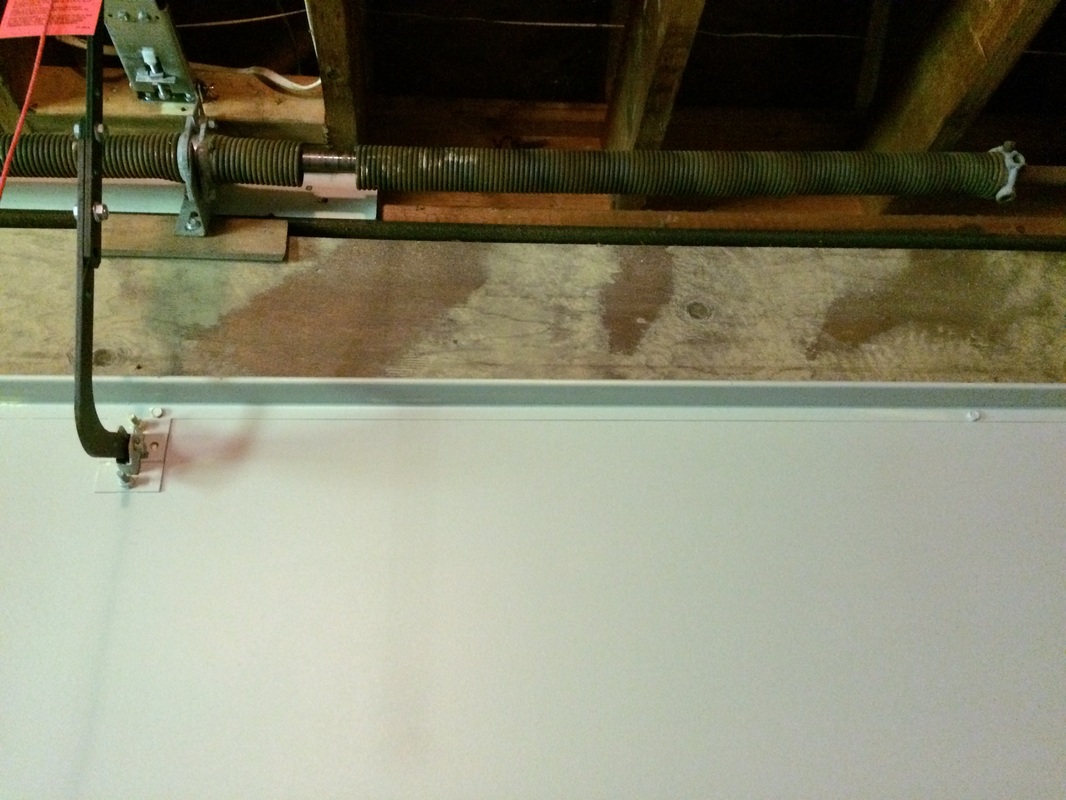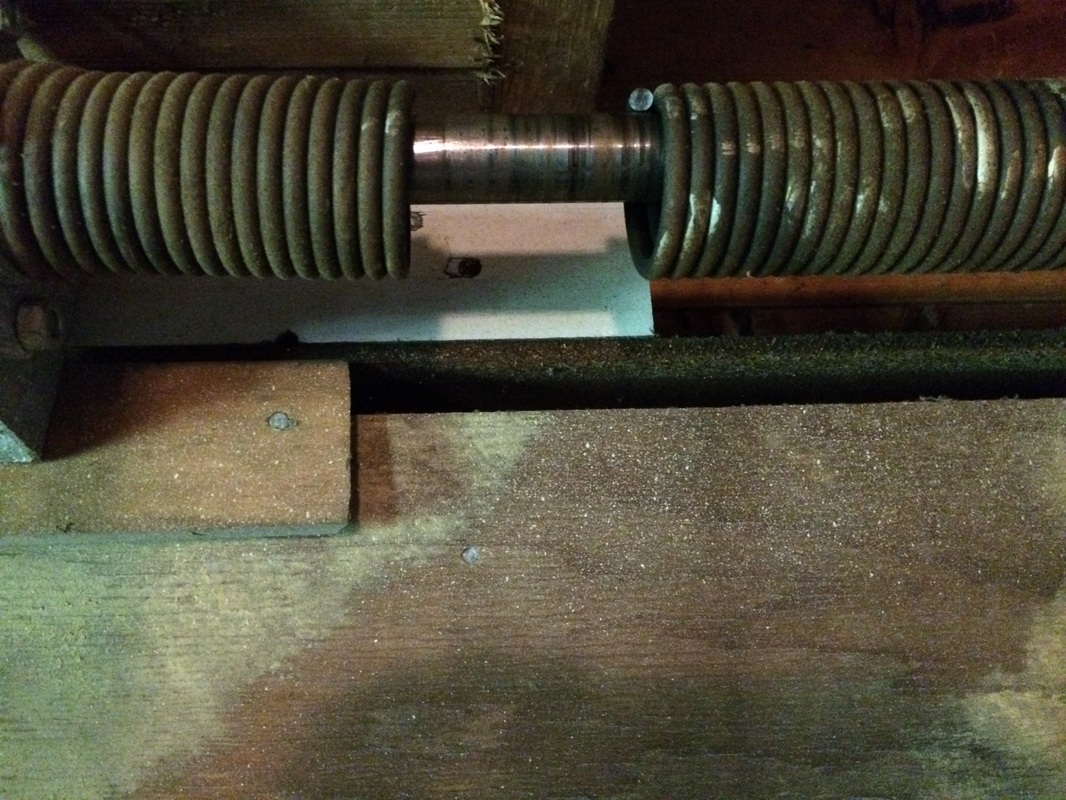Knowledge Center and Troubleshooting Page
Scroll through this page to learn more about typical problems homeowners face with garage doors and electric openers. Give us a call and we will be happy to walk you through any issues or come out to fix your garage door or opener.
Extension Springs
WARNING: If you have a broken spring, do not operate the door. Fixing springs can be dangerous without the proper knowledge or tools.
Extension springs are mounted from the back of the track and stretch alongside the track from the back to the front.
Extension springs are mounted from the back of the track and stretch alongside the track from the back to the front.
Torsion Springs
WARNING: If you have a broken spring, do not operate the door. Fixing springs can be dangerous without the proper knowledge or tools.
Torsion springs are mounted at the front on the header. There are usually two and are most commonly used for double car garage doors or heavier garage doors. A single torsion spring may be used for lighter doors.
Torsion springs are mounted at the front on the header. There are usually two and are most commonly used for double car garage doors or heavier garage doors. A single torsion spring may be used for lighter doors.
Other Common Parts - Pulleys (Sheave Wheels), Cables, and Rollers

Pulleys (Sheave Wheels)
If your door has extension springs, it will also have four pulleys. These pulleys are under significant tension and have ball bearings inside that wear out over time.
If your door is not operating smoothly or shaking as it goes down, replacing the pulleys usually resolves this issue.
If your door has extension springs, it will also have four pulleys. These pulleys are under significant tension and have ball bearings inside that wear out over time.
If your door is not operating smoothly or shaking as it goes down, replacing the pulleys usually resolves this issue.

Cables
All doors have cables, but doors with extension springs should now have two pairs - one pair of extension cables for operation of the door, and one pair of safety cables that run through the springs and catch the springs when they break.
Cables, like springs and pulleys, are under a lot of tension and do not last forever. Sometimes they break when the springs break and sometimes they become worn out, frayed, or snap on their own.
All doors have cables, but doors with extension springs should now have two pairs - one pair of extension cables for operation of the door, and one pair of safety cables that run through the springs and catch the springs when they break.
Cables, like springs and pulleys, are under a lot of tension and do not last forever. Sometimes they break when the springs break and sometimes they become worn out, frayed, or snap on their own.

Rollers
Four section doors have 10 rollers that allow the door to roll along the tracks. There are different kinds of rollers, ranging from plastic, steel, and nylon coated steel. Plastic rollers can get "sticky" after time, preventing the door from moving with ease through the tracks. Steel and nylon rollers have ball bearings inside, which allow for smoother and less resistant operation.
Rollers usually last longer than some of the other parts, but will wear out eventually and not always evenly. Some rollers are under more pressure than others. Some symptoms of rollers that need to be replaced include clicking sounds and heads that wobble on the stem.
Four section doors have 10 rollers that allow the door to roll along the tracks. There are different kinds of rollers, ranging from plastic, steel, and nylon coated steel. Plastic rollers can get "sticky" after time, preventing the door from moving with ease through the tracks. Steel and nylon rollers have ball bearings inside, which allow for smoother and less resistant operation.
Rollers usually last longer than some of the other parts, but will wear out eventually and not always evenly. Some rollers are under more pressure than others. Some symptoms of rollers that need to be replaced include clicking sounds and heads that wobble on the stem.
More to come soon! Please feel free to call 508-888-1508 and we will be happy to help you.




